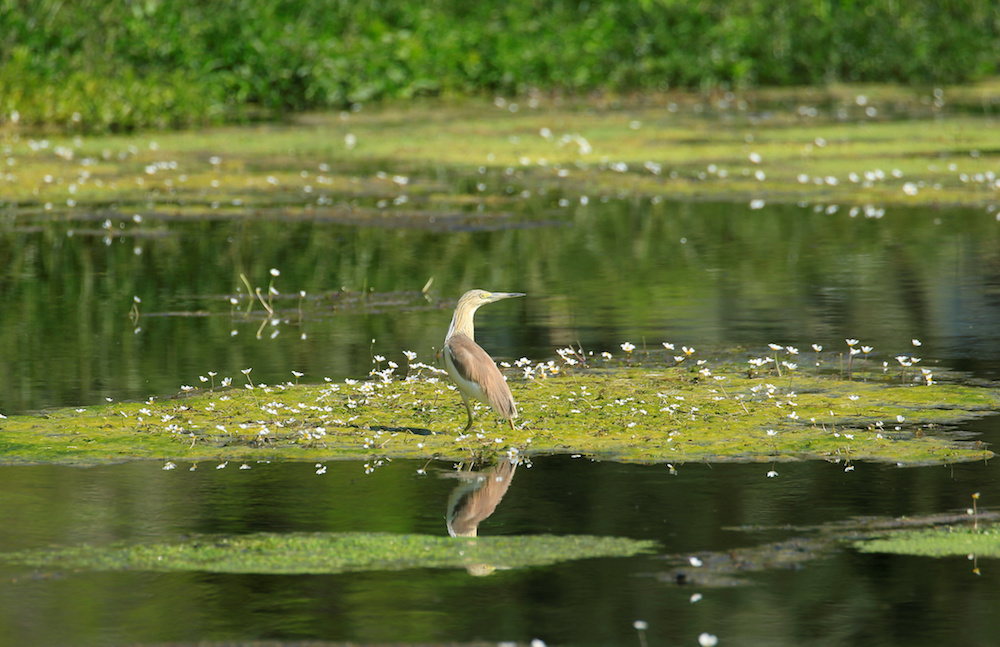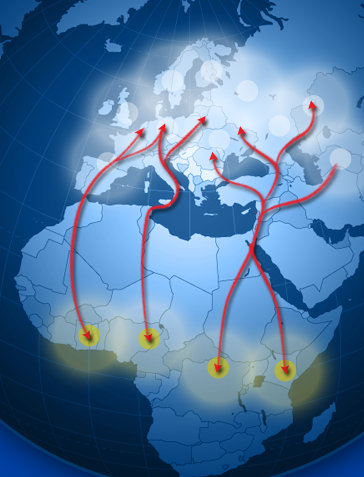News & Views
Poems for These Times: 12
(14 June 2020)
A Green Mother
by Ted Hughes

Much of the poetry of the English writer Ted Hughes (1930–1998) focuses on the natural world, observing with an original eye both its beauties and harsher realities. In a gentle vein, this week’s poem brings together heaven and earth.
A Green Mother
Why are you afraid?
In the house of the dead are many cradles.
The earth is a busy hive of heavens.
This is one lottery that cannot be lost.
Here is the heaven of the tree:
Angels will come to collect you.
And here are the heavens of the flowers:
These are an ever-living bliss, a pulsing, a bliss in sleep.
And here is the heaven of the worm –
A forgiving God.
Little of you will be rejected –
Which the angels of the flowers will gladly collect.
And here is the heaven of insects.
From all these you may climb
To the heavens of the birds,
the heavens of the beasts, and of the fish.
These are only some heavens
Not all within your choice.
There are also the heavens
Of your persuasion.
Your candle prayers have congealed an angel, a star –
A city of religions
Like a city of hotels, a holiday city.
There too I am your guide.
In none of these is the aftertaste of death
Pronounced poor. This earth is the sweetness
Of all the heavens. It is Heaven’s mother.
The grave is her breast, her nipple in its dark aura.
Her milk is unending life.
You shall see
How tenderly she wipes her child’s face clean
Of the bitumen of blood and the smoke of tears.
Image: 14 April 2020, Lebanon. A squacco heron at the Ammiq Wetland in the eastern Bekaa valley. Lebanon lies on one of the major migratory bird routes, and, along with other countries such as Turkey, Syria and Israel, has seen a great increase in the number of birds surviving the journey this year, due to a decrease in pollution and the suspension of hunting during lockdown. Photograph: REUTERS/Ali Hashisho

Poems for These Times
‘Poems for These Times’ is a special collection of poetry offered in response to the Covid-19 pandemic. It is intended as a way of sustaining us, and to give us something on which to meditate together during these difficult and challenging times.
There will be just one poem each week, so that we can really stay with what is offered. We can read it – perhaps aloud – to ourselves or to any companions in our isolation, and sense the vibrations through our whole being. For poetry has the power to affect us on every level – body, mind, heart and soul. It has a magic, which, in the words of poet Adrienne Rich:
“… goes back very far: the rune; the chant; the incantation; the spell; the kenning; sacred words; the naming of the child; the plant, the insect, the ocean, the configuration of stars, the snow, the sensation in the body… The physical reality of the human voice.”
Of course, not every poem will appeal to everyone – that is inevitable. But there is also the possibility that staying with something that does not immediately appeal can be stimulating and helpful. Experience suggests that sustained attention and contemplation of a poem’s music, words and thoughts can be deeply rewarding.
It would be lovely to share any responses and thoughts you may have through our comments section below.
Barbara Vellacott
Sources (click to close)
Poem: From Cave Birds (‘Three Books: Remains of Elmet, Cave Birds, River’, Faber & Faber, 1993)
More News & Views
Don’t Take It Easy
Richard Gault is inspired by Michael Easter’s book The Comfort Crisis and explores the idea of ‘misogi’ during a 600-mile walk across Scotland
Book Review: ‘The Serviceberry’
Martha Cass contemplates the message of a new book by Robin Wall Kimmerer that advocates ‘an economy of gifts and abundance’
Book Review: ‘Conversations with Dostoevsky’
Andrew Watson engages with an innovative new book by George Pattison which explores Dostoevsky’s relevance in the contemporary world
Thich Nhat Hanh & the Poetry of Engaged Buddhism
Philip Brown presents the poem ‘Recommendation’ and comments on the potential of contemplative art to foster compassion
Introducing… ‘Perfect Days’ and ‘Nowhere Special’
Jane Clark watches two films with a contemplative theme
Book Review: ‘Irreducible: Consciousness, Life, Computers and Human Nature’
Richard Gault reviews a new book by Federico Faggin, one of the leading lights of the science of consciousness
FOLLOW AND LIKE US
——————————————
——————————————
——————————————
If you enjoyed reading this article
Please leave a comment below.
Please also consider making a donation to support the work of Beshara Magazine. The magazine relies entirely on voluntary support. Donations received through this website go towards editorial expenses, eg. image rights, travel expenses, and website maintenance and development costs.
FOLLOW AND LIKE US
READERS’ COMMENTS
0 Comments